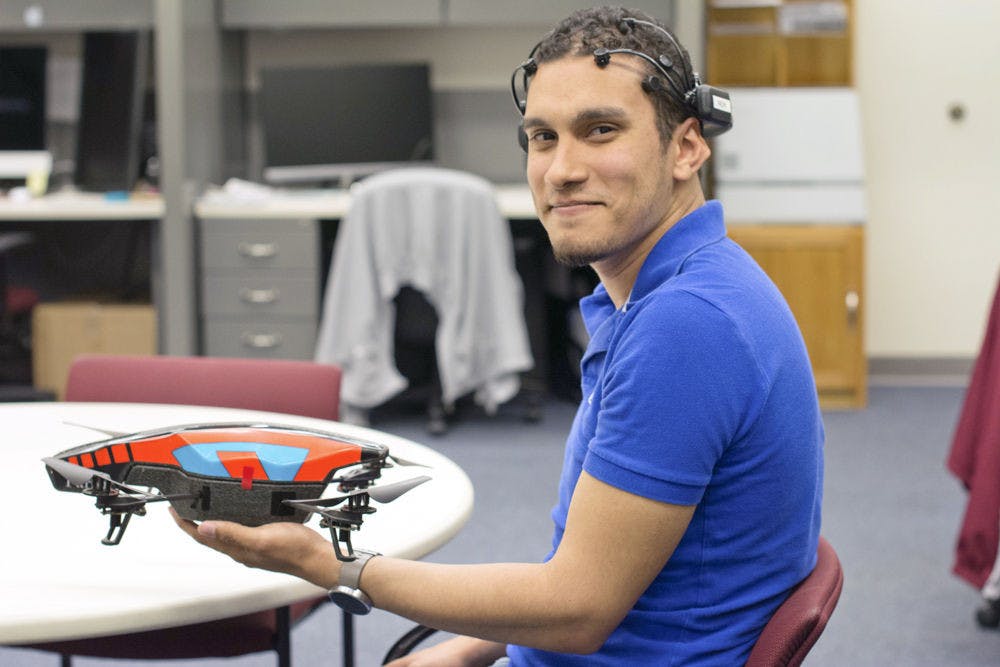Marvin Andujar and Chris Crawford have been inseparable for about three years and can practically read each other’s minds. Now they have a drone that can read theirs.
Andujar and Crawford, both UF human-centered computing third-year doctoral students, programmed a brain-computer interface software for a mind-controlled drone.
The 25-year-olds transferred from Clemson University together, interned at Intel together, roomed together and now share an office together.
Their drone responds to people when they wear an Emotiv Systems EPOC headset, a device that translates electrical signals from the brain into code the drone can understand.
The drone responds to any basic directional command, Crawford said. However, flying is currently limited to forward and stopping motions because it needs additional human training and software development. Users typically need three to four minutes of brain training to fly the drone.
After more than two years of researching, building and developing the drone, both students said they believe the most difficult part wasn’t creating the drone. It was communicating with people.
“One of the most restraining parts is to convince people that this actually works — that this is the future and that this is very useful, too,” Andujar said.
Andujar said BCI technology, a realm of study with fewer than 100 American researchers, has practical applications in the medical field.
While it can be helpful to those with physical disabilities, BCI technology can also serve able-bodied people, Andujar said. Robots can be used in the future for time- and energy-saving tasks as simple as carrying groceries.
The technology is also being implemented in fields like neurogaming.
“The most frustrating thing is that after you do make a breakthrough, is that if you submit a paper or if you do something or you try to talk to someone about funding, they don’t understand it,” Crawford said.
Andujar and Crawford have been working to make the technology more user friendly.
“If people cannot use this, then it’s useless,” Andujar said.
Juan Gilbert, associate chair of research in the UF Department of Computer and Information Science and Engineering, understands and supports their work.
As their adviser, Gilbert has sponsored them and helped conduct research since Fall 2013.
“They are relentless in their pursuits,” Gilbert said. “They really are the kind of people who pick up a problem and can’t set it down.”
Both doctoral students and their adviser said they believe the drone is still unfinished, and it will continue to be a tool for BCI research at UF.
Next up, the duo plans to make a humanoid a reality.
[A version of this story ran on page 1 - 4 on 4/7/2015 under the headline “UF students program software for mind-controlled drone”]
Marvin Andujar, a 25-year-old UF human-centered computing doctoral student, poses for a photo with a mind-controlled drone that he and his partner, Chris Crawford, programmed.






